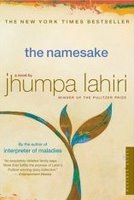Beyond FINESSE: Authors Patry Francis and Emily Perl Kingsley
 My week got off to a great start this morning when I read the June 25th post on author Patry Francis’s blog, Simply Wait. Patry is what folks in the publishing industry call an “emerging writer,” though I suspect she’s been putting pen to paper for many years. Her debut novel, The Liar’s Diary, is due out next spring. I’ve already told Patry I’ll be in line at her first Denver book signing. She writes from the heart and captures a scene with simple eloquence. I’d love to see a collection of her insightful, lyrical posts published some day.
My week got off to a great start this morning when I read the June 25th post on author Patry Francis’s blog, Simply Wait. Patry is what folks in the publishing industry call an “emerging writer,” though I suspect she’s been putting pen to paper for many years. Her debut novel, The Liar’s Diary, is due out next spring. I’ve already told Patry I’ll be in line at her first Denver book signing. She writes from the heart and captures a scene with simple eloquence. I’d love to see a collection of her insightful, lyrical posts published some day.While this may seem like a diversion from my usual diversity posts, I think there’s something to be said for looking on the bright side when things don’t go as planned. As Patry writes, “true love is all about the unexpected.” Many parents with children with special needs cope with the unexpected on a daily basis. Like the bride in Patry’s story, they learn to accommodate often immense challenges in order to savor the love that shines through even the darkest days. My current book explores obstacles faced by families with a child with Down syndrome. One of my favorite works on the subject is the 1987 essay “Welcome to Holland” by Emily Perl Kingsley. While welcoming a child with Down syndrome into one’s family may not be the easiest thing to do, Kingsley writes, it’s not the worst, either. It’s simply different. Perhaps not as imagined or planned and perhaps not perfect, but that’s okay. Like a bride who realizes a little rain (okay, a lot of rain!) doesn’t change the fact that she’s in love and newly married and surrounded by family and friends who cherish her, so do many parents (like Kingsley) whose children have special needs come to realize there are still many things to celebrate and many joys to anticipate as they face the future.
Photo © Levi Lenaerts – FOTOLIA














